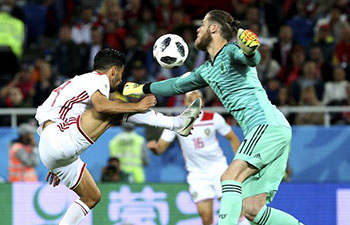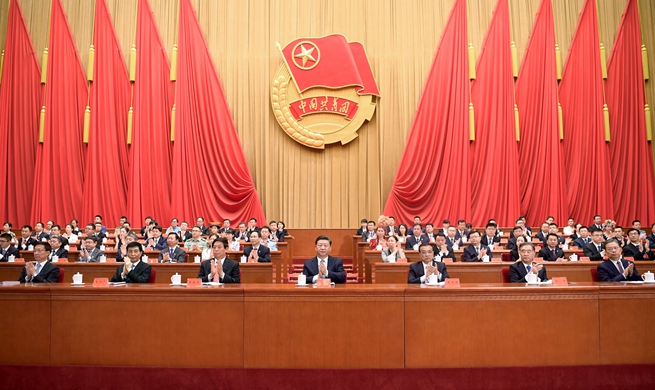by Eric J. Lyman
ROME, June 26 (Xinhua) -- If there's a major area where the two unlikely partners in Italy's new government agree, it's a shared skepticism about the value of vaccines for children.
The Italian government, headed by Giuseppe Conte and installed June 1, is backed by the nationalist League party and the anti-establishment Five-Star Movement.
So far, the League has focused on issues related to migration, the country's population of nomadic Roma, and a flat tax rate for companies and individuals. The Five-Star Movement, on the other hand, is critical of maintaining deep ties between European Union (EU) member states and the euro currency, environmental issues, and it wants to establish a basic minimum income for Italians.
But both parties hold the controversial view that obligatory vaccines are a mistake.
Last year, Italy changed its laws to give it one of the EU's weakest obligatory vaccine laws, requiring only ten vaccines compared to 12 in most of western Europe, and lower-than-average fines for parents who fail to vaccinate their children.
But those laws could be further weakened. Matteo Salvini, head of the League, minister of the interior, and one of two deputy prime ministers in the new government, said last week that requiring children to be vaccinated for ten diseases was "useless". Salvini has said all immunizations should be optional for parents.
Meanwhile, during the campaign leading up to the March 4 general election, Five-Star Movement boss Luigi Di Maio said only five types of vaccinations should be required. Di Maio is the other deputy prime minister as well as minister of labor.
There is a growing movement against requiring vaccines for children, based on the belief that doing so could cause problems such as autism or the belief that too many vaccines taken in a short period of time can weaken a child's immune system. Both theories are based on limited research and are seen as without merit by almost all scientists.
"There is a history of one or two flawed studies or an anecdote retold by a few parents causes widespread doubt about vaccines," Antonio Li Fonti, a retired doctor and the author of dozens of research papers about vaccine use, told Xinhua.
"But the fact is that vaccines have saved millions of lives over the last century and that there is almost no systematic risks involved in using them to fight disease," Li Fonti said.
The Five-Star Movement has campaigned against vaccine use since 2015. Last year, Italy's ministry of health said the campaign was one of the main factors in a measles outbreak that infected 5,000 people last year, killing four. Di Maio now says a measles vaccination should be among the five obligatory immunizations for children.
Giulia Grillo, Italy's new minister of health and a member of the Five-Star Movement, has said she believes vaccines are effective but that they should not be mandatory. She has said government efforts should be focused on convincing doubting parent rather than requiring them to immunize their children.
The ten diseases that Italian children are required to be vaccinated against before entering school are chickenpox, diphtheria, haemophilus influenza B, hepatitis B, measles, mumps, polio, rubella, tetanus, and whooping cough. All are provided free of charge by the national health service along with a handful of other optional vaccinations.













